Veterinary internships with wildlife in Costa Rica
Veterinarian Program Overview
Natuwa established the Veterinarian Program at our sanctuary with the core mission to manage, maintain, and assist the animals in our care. Home to a diverse collection of species, including jaguars, tapirs, monkeys, macaws, and more, our sanctuary is a haven for approximately 600 animals. These animals require more than daily primary care, necessitating a program designed to meet their complex needs. Our veterinary internship program is created to allow veterinary students to apply their skills in a real-world setting. The program aims for participants to engage hands-on in activities that directly benefit the animals. With the guidance of a full-time veterinarian and the participation of students, our goal is to ensure that all animals receive the highest standard of care. The program’s activities aid their well-being and provide an invaluable learning experience for the students involved.
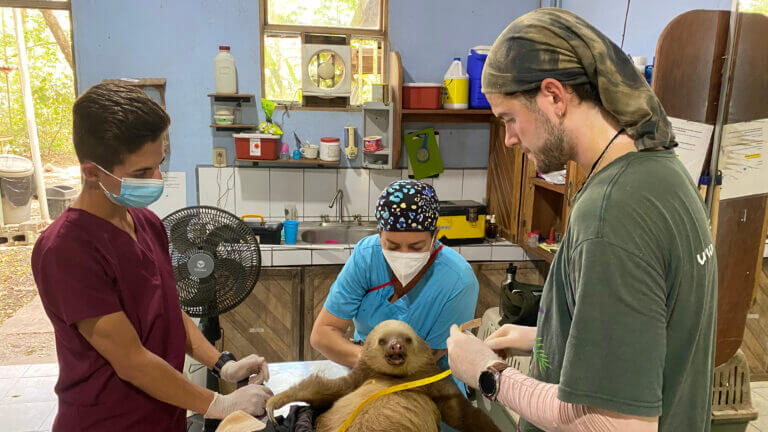
A significant emphasis of the program is on the conservation and proper management of native Costa Rican wildlife. Participants will work closely with these animals, contributing to their preservation and sending a powerful message to the community about the importance of protecting our ecosystem from the adverse effects of human activities.
Through this program, we aspire to educate and inspire future veterinarians to advocate for wildlife conservation and ethical animal management, ensuring a brighter future for our planet’s biodiversity.
Activities
The Internship Program comprises several activities focused on animal welfare such as environmental enrichment, operant conditioning, preventive medicine, feeding, emergency assistance, clinical cases, animal containment, diagnosis of death, among others.
Said activities will be carried out with the wild fauna that houses a duly registered wild animal sanctuary in Costa Rica.
Our focus is animal welfare
Environmental enrichment
Among the most important activities to improve Animal Welfare in sanctuaries, zoos and the like is environmental enrichment. Which is widely developed because it improves the quality of life of the faunal species that these sites guard.
The environment for a captive animal should resemble, as much as possible, the conditions in which it lives naturally.
Hence, environmental or behavioral enrichment is achieved by adding objects to the enclosures that allow stimulating behaviors similar to those that occur in healthy free-living individuals.
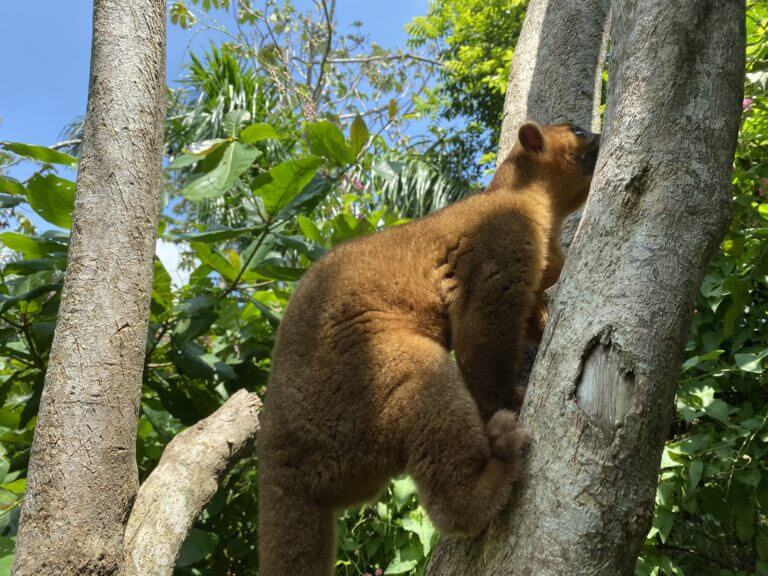
For example, changes will be made to exhibit structures, feeding times, or social groupings. In addition, changes in the form of food supply. Work will be done on the addition of new displacement surfaces (branches, ropes, fences), construction of nests or bedrooms, among other environmental enrichment activities for wild animals in captivity.
With all of the above, it will be possible to satisfy the physical and psychological needs of the animals, helping to avoid or control neurotic or abnormal behaviors (stereotyped) such as “pacing”, regurgitation and re-eating of food or self-mutilation.
Therefore, the intern will participate in a routine in which he will learn to stimulate the animals to sniff, jump, run, jump, climb trees, fly, swim, among other activities typical of the nature of each individual.
By participating in the Veterinary internships with wildlife in Costa Rica you will learn the bases of an environmental enrichment program in different species, evaluating the interaction and behavior of animals.
Operant conditioning training
The management of wild animals in captivity becomes difficult and dangerous, both for the specimen and for the people involved.
To carry out the different management protocols in any captive wild species, a physical\chemical containment is required.
One of the important aspects of animal training by operant conditioning is the possibility of improving the welfare of the specimens involved. Since, this training promotes physical exercise, mental stimulation and allows veterinary medical procedures to be carried out.
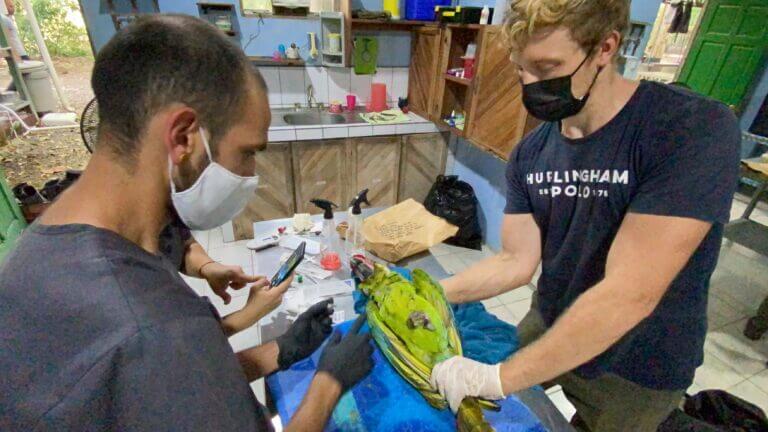
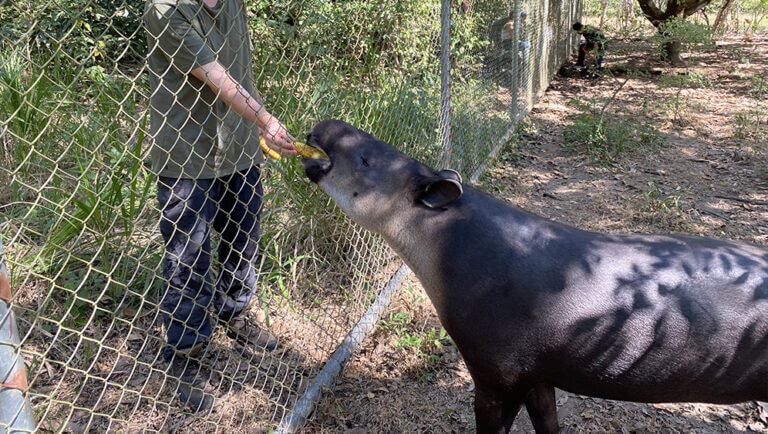
As an intern at NATUWA, you will be able to learn the basic concepts of operant conditioning, and you will have the opportunity to document the evolution of the training program in jaguars, tapirs, macaws and others, under the supervision of the Veterinary Doctor.
Preventive medicine
Preventive health care is an essential part of any captive management program. General Physical Examinations: (Restraint, sample taking, injection sites, deworming protocol).
You will participate in a preventive medicine program where you will learn how to manage animal quarantine properly. As well as performing complementary tests (blood samples, skin scrapings, coproparasitoscopic), the different routes of drug administration will also be identified.
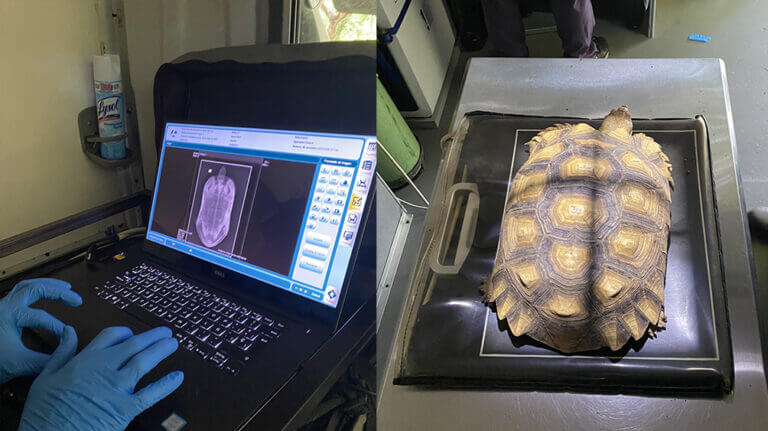
Deworming protocols will also be carried out, including routine examinations in mammals, birds and reptiles. You will make collections for the diagnosis and specific treatment of each species. Detecting and controlling parasites will be part of this exercise; in case of positive tests, the most appropriate identification and treatment will be made to help the animals in their immunity processes.
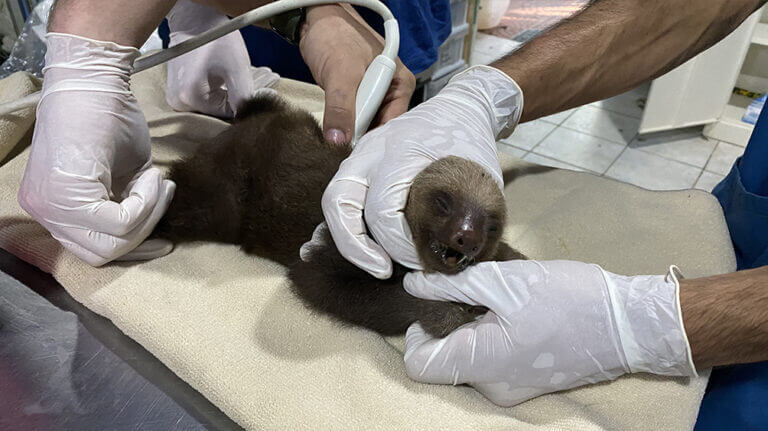
The intern will learn in a practical way how physical containment is carried out in the wild animals that NATUWA houses in order to carry out a complete physical evaluation of the animal (body condition, general condition, etc.).
Therefore, you will actively participate in the preventive medicine program for wild animals at the sanctuary by carrying out the procedures described above.
Diet preparation, food handling and cross contamination
In this section, the inmate will have the opportunity to work in the food area, for which he will learn about the different diets offered depending on the species in question, he will learn about the handling of food in terms of storage and distribution, and he will be Teach preventive measures to avoid food cross-contamination.
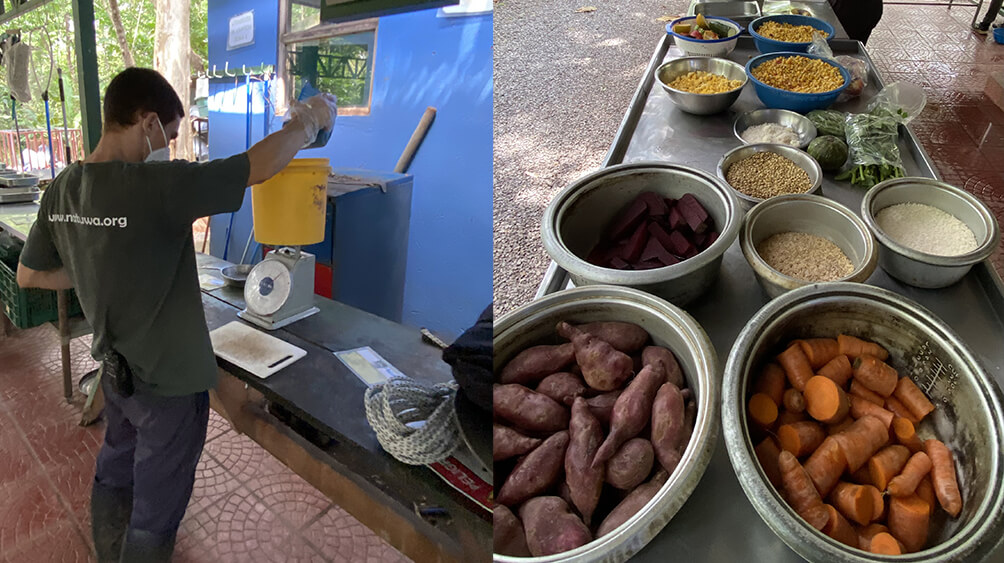
Emergency assistance
The intern may assist the veterinarian in the event of an emergency, such as monitoring the patient as main functions (taking physiological constants, general evaluation of the patient’s condition, documentation of the intervention carried out).
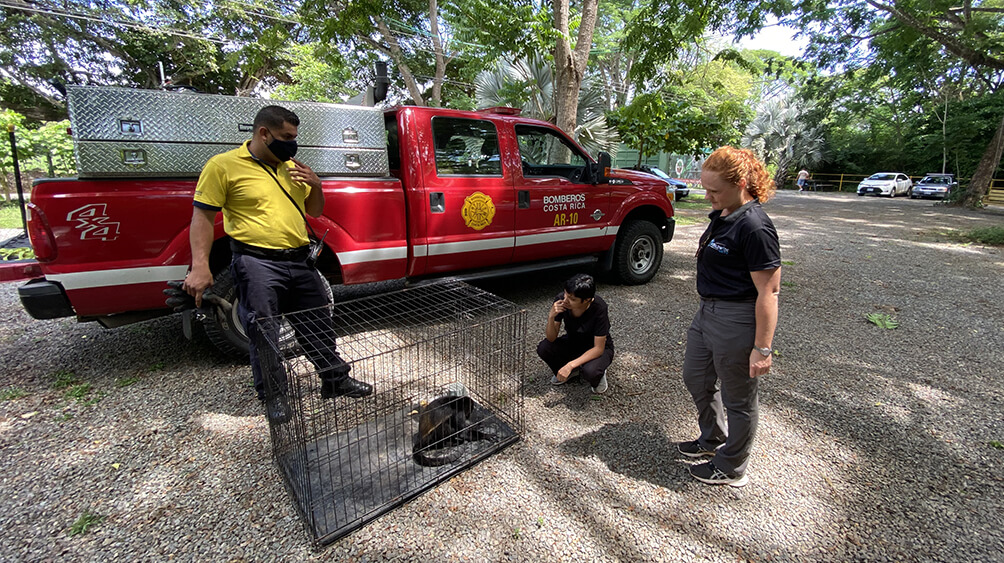
Clinical cases
If clinical cases arise during the internship, these will be discussed with the veterinarians and founders, in order to share different experiences.
A daily report of the case can be made (Complementary studies, Dx. Differentials, definitive Dx, Tx to establish, evolution of the patient, etc.).
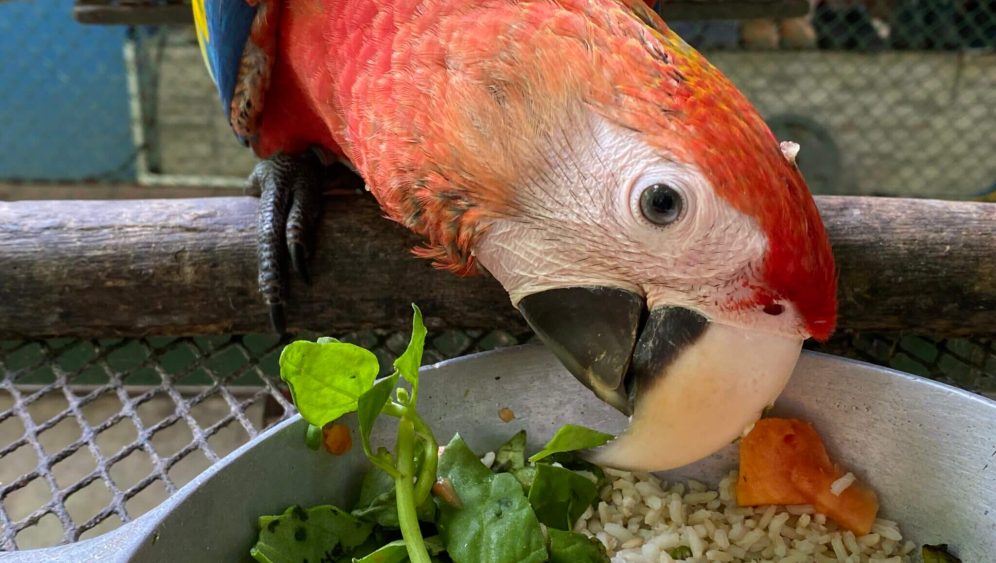
Chemical and physical containment in wildlife
It is vitally important that the participant understands that in wildlife management sites such as NATUWA, situations arise where it is necessary for veterinarians to perform restraint procedures (physical restraint) and chemical restraint on the different species of animals in the sanctuary. The reason may vary according to the management objective required, this can range from a routine review to the worst case scenario, when the life of the animal that is protected is compromised.
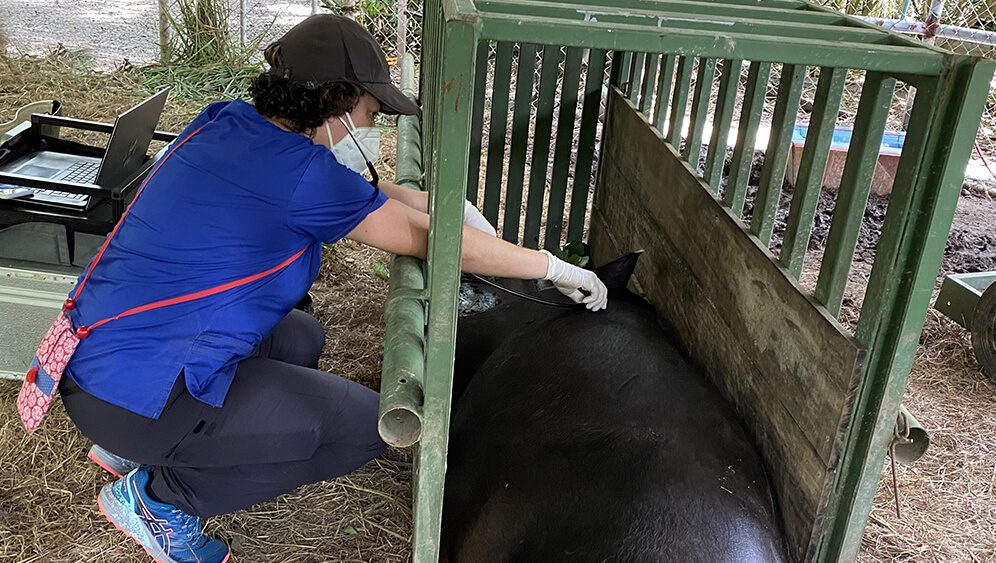
Chemical containment
Due to the above, the intern will theoretically know the principles of this branch, will learn to carry out these procedures through the use of chemicals such as sedatives, anesthetics and the use of tele-injection instruments (darts, blowguns, etc.) and their correct dosage according to the species and the patient.
Mechanical restraint and restraint
For physical containment, you will learn the use of nets, compression boxes, handling sleeves and other devices that will facilitate the handling of animals according to the objective of containment. On the other hand, you will learn the correct restraint so as not to inflict injuries on the animal, nor that it causes us injuries during the required procedure.
Diagnosis of death
¿Why is it important to diagnose the death of a wild animal?
When working in a wildlife management site like NATUWA, proper necropsy is of the utmost importance.
Necropsy
The corresponding necropsy will be carried out together with the inmate, in this way, through the macroscopic and microscopic findings, complementary studies, a report of the cause of death of the individual can be given, which will be attached to the file.
This helps us:
1. Provide information on diseases and determine the cause of death. Diagnostic value.
2. Check the effectiveness of the treatment. therapeutic value.
3. To be control for zoonoses. Sanitary value.
4. Serve as a teaching aid. Teaching value.
Affordable rates for our Veterinary Internship Program.
Veterinary Internships in the Biodiversity Paradise: Discover the Magic of Costa Rica and its Wildlife
Our prices are in Costa Rican colones.-
What is included?
-
Meals (Breakfast, lunch and dinner)
-
Wifi
-
Accommdation
-
Professional Training with a wildlife veterinarian.
-
Materials and Equipment
-
Participation Certificate
¡Feel free to ask how to get a discount!
Convert Currency Easily
For our international interns, to view the current exchange rate from US dollars to Costa Rican colones, please click [here] to visit the Banco de Costa Rica’s official currency converter.